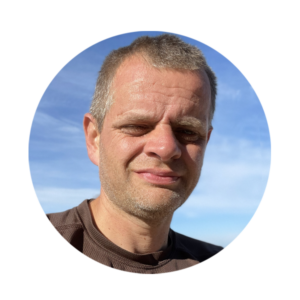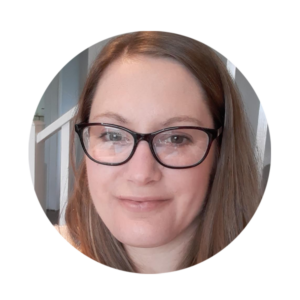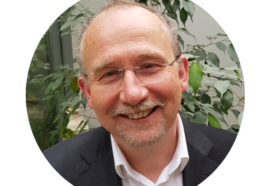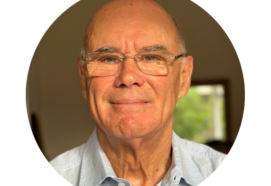This webinar, organised by the ACAMH Scottish Branch, provided an opportunity to look at the changing culture and attitudes towards neurodiversity matters when supporting children and young people.
Becky Choat slides
Key learning takeaways
- Increased understanding of the factors – including social, emotional and psychological factors – which contribute to cultures and attitudes around neuro-diversity
- Pragmatic ways of supporting children and young people which balance recognising strengths and assets whilst avoiding ‘toxic positivity’ and ‘superpower’ analogies
- Consideration of children and young people’s rights and views.
About the talks
Dr. Jason Lang – “So what is this Neurodiversity Paradigm thing anyway?” – Gold vs Diamonds; could a neuroaffirmative approach improve outcomes for children and young people?
In this talk, Dr Lang will explore the neurodiversity paradigm and contrast this to the psycho-medical approach. He will explore concepts such as the social model of disability, argue that the vast majority of so-called “deficits” associated with neurodivergences are located in the environment rather than the child, and consider the use of language and how this may be adapted so that so-called “deficits” can instead be reframed and viewed as strengths. Dr. Lang will then explore the concept of healthy neurodivergence and how a strengths led, neuroaffirmative approach might improve the lived experiences of our neurodivergent young people. He will conclude with suggestions for practice change and development which may lead to more neuroaffirming approaches and better outcomes.
Learning outcomes
- To understand the fundamentals of the neurodiversity paradigm and how this differs from the psycho-medical view
- To consider the use of lanaguage and how this can be adapted in clinical situations to a more neuroafirmative style
- To reflect on possible practice changes which may help enrich the overall health care experience for neurodivergent children.
Becky Choat – Reframing Autistic Experience – Assumptions versus reality – a very human perspective
This session will challenge existing myths and misconceptions that shape a very narrow, stereotyped, deficit-based understanding of Autism by discussing the very human impact of these harmful narratives. By sharing the research, learning and experience of the autistic community we will provide insight into neuro-affirming practices and reframe autistic identity from a lived experience perspective.
Learning outcomes
- To recognise the challenges and harmful impacts of deficit-based or superpower based narratives of autism
- To consider neuro-affirming practices and understanding of autistic experience
About the speakers
Dr. Alice Bryant is a Paediatric Registrar Doctor based in Royal Aberdeen Children’s Hospital. She has an interest in mental health, neurodiversity and the intersection and interaction between physical and mental health. She is one of the first trainees to take part in the new Child Mental Health spin program from the Royal College of Paediatrics and Child Health which enables paediatric doctors to gain extra exposure and training in mental health.

Dr. Jason Lang is a Senior Clinical Lecturer in Neurodevelopment at the University of Glasgow and an Honorary Consultant in Child and Adolescent Psychiatry. His research interests include neurodiversity in children and young people, the co-occurrence of different neurotypes within this population and the experience of being neurodivergent, including equality issues associated with neurodivergence. He is also interested in how services, early intervention, and environmental interventions can be configured to better serve this population. Jason has a longstanding interest in education and is currently working on the creation of a national Neurodevelopmental Practitioner course as well as collaborating on the development of an Infant Mental Health course within the University of Glasgow. Jason possesses some lived experience of neurodivergence. He is autistic and is father to two daughters who are also both neurodivergent.

Becky Choat is the Projects Lead for SWAN. As a late-diagnosed autistic woman and mother, Becky has a particular interest in the intersectionality of gender and autistic identity, as well as autistic experiences of trauma and mental health. Becky’s career in teaching, community-based family support and managing adult health and social care services enables Becky to bring both her lived experience and professional knowledge into her work with SWAN. Within her role for SWAN Becky leads on the development and delivery of their specialist autistic-led training and consultancy work. Alongside this Becky also oversees SWAN’s post-diagnostic support and webinars, providing information and support both for and by autistic women and creating safe spaces for autistic women to support understanding and confidence in their autistic identity, improve well-being and reduce isolation through connection and community.
Kieran Kelly is the Project Support Assistant at award-winning charity, I Am Me Scotland, where he has worked since 2016. Kieran has had input to the #MakeADifference programme, has achieved SVQ Level 2 qualifications and has assisted with the delivery of the Keep Safe Initiative and Ambassador programmes. Most recently, Kieran, who has autism and learning difficulties has developed a new teaching resource for schools and settings to use to help break down negative attitudes to autism and increase understanding of the value and skills autistic people bring



Discussion
Hello Matt I have tried to access this recording but my log-in password does not seem to work. Is there a specific password required to access this please?
Hello. Currently this is just for the delegates who booked onto the live session. It will be made available to ACAMH Members in 90 days.